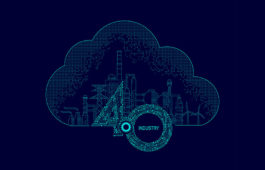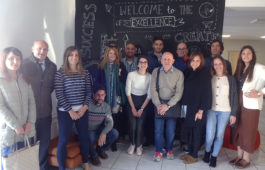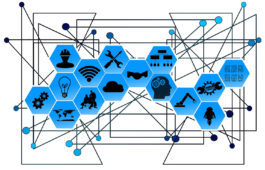Industry 4.0 and Labour Market in Italy
Every year, Italian Chambers of Commerce publish a survey containing a detailed forecast of labour market needs in Italy. The Excelsior survey is conducted by the Italian Union of the Chambers of Commerce (Unioncamere) and funded by the Ministry of Labour (through the European Social Fund). This survey is part of the official statistics produced on an annual basis within the Italian National Statistical System (SISTAN).Every year (since 1997) the survey covers a sample of over 100.000 companies and SMEs operating in Italy and provides detailed information on the characteristics of the labor demand in the country: in addition to the number of employees that the enterprises plan to recruit during the year and for the next three months.
The analyzed data cover several qualitative aspects, among which:
- the specific positions employers expected to cover;
- the required educational levels;
- the preferred age of candidates;
- the request experience;
- the need to provide post-entry training;
- the difficulty of enterprises in finding candidates fitting the required profiles.
The Excelsior survey provides concrete support for:
- assessing the actual needs of enterprises and their changes over time;
- better matching between labor supply and demand;
- the definition of policies on education and professional training.
The most recent Excelsior survey documents that companies have increased the level of required skills (upskilling) to respond to the change brought about by globalization and technological progress.
The shift towards Industry 4.0 brings an increase of high skill positions, and has often turned into an increase in the difficulty of finding personnel, especially for highly skilled workers, who are lacking both in quantitative and qualitative terms.
Thus there is a persistent mismatch between demand and supply of labor.
As a result of upskilling, the demand for technical and technological skills related to the STEM (Science, Technology, Engineering, Mathematics) disciplines has grown, but also humanistic and social skills are increasingly in demand.
The ongoing structural changes linked to the digitalization of technological progress, climate change, and aging of the population make the economic system more complex to interpret and therefore soft skills that develop through humanities are also necessary (flexibility, team-working, problem-solving, communication skills).
The most required e-skills are the ability to use mathematical languages and methods, digital skills, the ability to manage robotics applications, big data and IoT.
The most difficult technical professional figures to be found in the industrial sector are electrical engineers, electronic technicians, and mechanical technicians.
In the services sector, the most requested professional figures are insurance agents, technical programmers, real estate agents.
The ten most difficult professions to find in the italian market carisoprodol 350 mg for back pain
| Percentage share difficult to find | Percentage for shortage of candidates | Percentage for inadequacy of candidates | |
| Teachers of artistic and literary disciplines |
65,6 |
26,0 |
35,1 |
| Software analysts and designers |
60,7 |
43,2 |
15,4 |
| Electric welding specialist |
60,5 |
24,2 |
32,3 |
| Computer technicians |
60,2 |
10,2 |
49,9 |
|
Insurance agents |
60,2 |
24,0 |
27,5 |
| Electrical technicians |
58,6 |
32,1 |
23,0 |
| Tourist entertainer |
57,9 |
9,0 |
47,2 |
| Programmer |
56,2 |
35,0 |
19,3 |
| Welder |
55,1 |
27,1 |
25,3 |
| Electronic technicians |
54,0 |
23,1 |
27,2 |
Source:https://excelsior.unioncamere.net/eng/index.php?option=com_content&view=article&id=1&Itemid=101
















